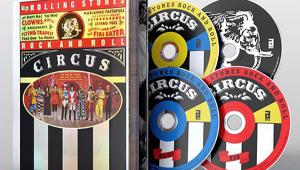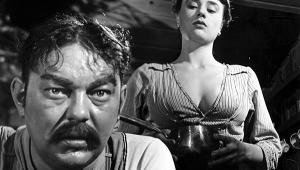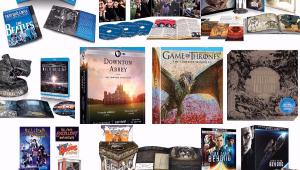Neil Young: Archives Vol. 1 (1963–1972) Page 5
 |
Another phase of Young's ever-evolving career is displayed on Disc 6, Topanga 3 (1970). Bill Peterson's flugelhorn solo sounds beautiful meshing with Neil's piano on the title track of After the Gold Rush. I got a kick watching the LP-playback option for "When You Dance, I Can Really Love" (from the first pressing of Gold Rush), which shows a close-up of a dusty black tonearm with a Pickering DAT 2 needle. (When you spin vinyl, I can really love . . .) The David Crosby solo track "Music Is Love" (from If I Could Only Remember My Name) features Young on vibes in the right channel, a nice complement to the song's layered acoustic-guitar jangle.
Disc 7, Live at Massey Hall (Toronto 1971), was also released before (in 2007 as Vol. 03 in the Performance Series). It's Neil's solo-acoustic unveiling of many songs unheard by audiences to that point. Besides the already issued 8mm footage of most of the show, the real gems here are the Video extras found in the More section. Two performances from the Johnny Cash on Campus TV special come from Nashville on February 7, 1971, complete with Cash doing a taped offsite introduction to Young performing "The Needle and the Damage Done" at the Ryman Auditorium. Young himself intros the song with a just-say-no drug caveat and the prescient assessment, "A lot of great art goes down the drain."
Then comes Disc 8, North Country (1971-1972), which cultivates the Harvest period. Particularly tasty is "Heart of Gold" and the sweet harmonies of Linda Ronstadt and James Taylor on the last verse - especially Ronstadt's upward lilt at the end of the final line, "I've been a miner for a heart of go-o-old." And the detail evident in the London Symphony Orchestra's arrangement of "A Man Needs a Maid" primed me to hear further classical treatments on Blu-ray.
- Log in or register to post comments






























































